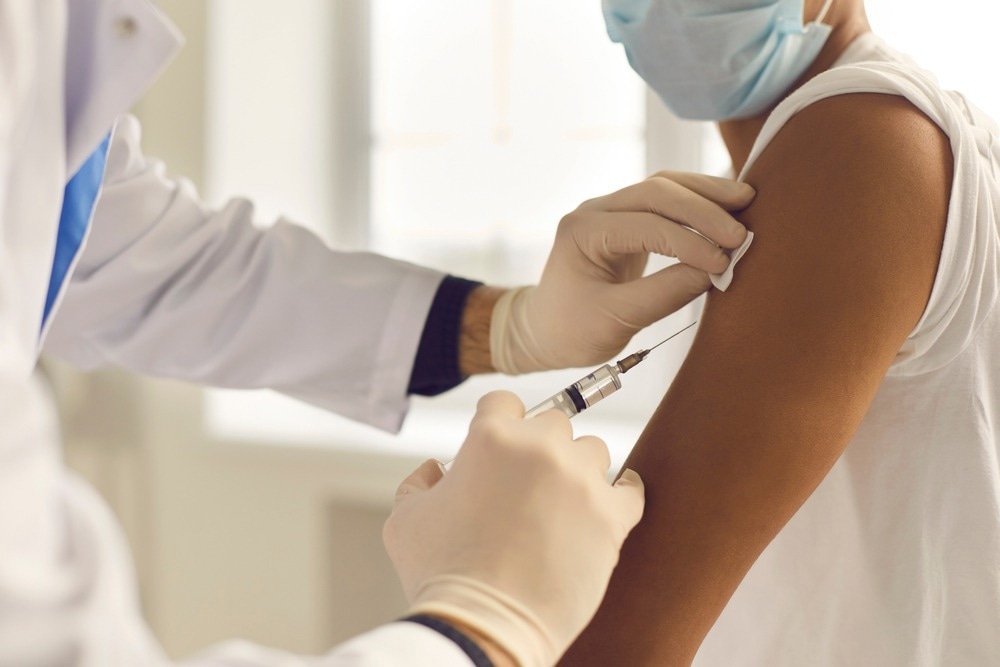In a recent study published in the Morbidity Mortal Weekly Report, researchers described reasons cited by adults for receiving or not receiving coronavirus disease 2019 (COVID-19) booster vaccines.

Background
It is recommended that bivalent COVID-19 booster vaccinations, designed to protect against severe acute respiratory syndrome coronavirus 2 (SARS-CoV-2) ancestral strain as well as Omicron BA.4/BA.5 sublineages, be employed to strengthen protection against COVID-19 infection and severe illness. However, comparatively few US adults eligible for booster vaccines reported being vaccinated with a bivalent booster dose. The reasons for this low vaccine coverage are yet unknown.
About the study
In the present study, researchers explored why adults reportedly did and did not receive the bivalent COVID-19 booster vaccine.
Participants were enrolled through the online survey platform Prolific. Eligible participants were aged 18 years or older, proficient in English, US citizens, and vaccinated with one or more prior COVID-19 vaccines. To recruit almost equal proportions of adults aged between 18 and 39 years, 40 and 59 years, and 60 years and above, quota sampling was employed. Data collection was performed between 1 and 5 November and 6 and 10 December 2022.
Participants reported the dates of all prior SARS-CoV-2 infections and COVID-19 vaccination doses. The individuals vaccinated with the bivalent booster dose were given a randomly arranged list of 10 proposed reasons for receiving the booster dose. They were asked to select multiple reasons that influenced their decision. They were also asked to enter additional reasons if any.
Participants who were not vaccinated with a bivalent booster vaccine could choose from a different set of randomly ordered ten reasons for not receiving the booster dose and optionally provide additional reasons. The non-vaccinated participant then viewed information regarding the eligibility and availability of the bivalent booster vaccine. Subsequently, non-booster vaccinated participants indicated whether they intended to receive the booster vaccine after receiving this information and were contacted through Prolific one month later to answer a follow-up survey.
Results
The initial survey involved 1,200 individuals, with almost one-third of individuals classified in each age cohort. Almost 65% of the participants were White, while 51.9% were female. Most patients (95.8%) were vaccinated with two SARS-CoV-2 vaccine doses, including 396 (34.4%) vaccinated with the bivalent booster vaccine. Approximately 714 (62.1%) reported not receiving the bivalent booster vaccine. Almost 396 individuals vaccinated with the bivalent booster vaccine cited an average number of five reasons.
The most prevalent reasons included protecting oneself (90.7%), preventing serious disease (80.6%), and protecting others (75.0%). The team noted that these motives were constant across age groups. Furthermore, the 714 individuals who were not vaccinated with the bivalent booster vaccine cited an average of one reason for not being vaccinated.
Age-specific reasons for not obtaining the bivalent booster dosage varied across the cohorts. The most common reasons cited by adults aged between 18 and 39 years for not obtaining the bivalent booster dosage were ignorance of eligibility (29.8%), ignorance of the availability of updated booster doses (23.5%), and the belief that they were still adequately protected against SARS-CoV-2 infection (18.5%).
The most prevalent reasons cited by persons aged between 40 and 59 years were ignorance of eligibility (22.1%) or the belief that they were still adequately protected against severe COVID-19 disease (21.3%) or SARS-CoV-2 infection (18%). The most prevalent reasons cited by people aged 60 years or older for not receiving a bivalent booster dose were the belief that they were still adequately protected against infection (20.2%), anxiety about adverse effects (17.5%), and uncertainty regarding the booster's efficacy (16.2%).
Commonly, adults aged between 40 and 59 years and 60 years and older did not receive a booster dosage because they believed they were sufficiently protected from infection or serious disease. Yet, among the 223 people who chose either or both of these explanations, 160 (71.7%) had neither tested positive for SARS-CoV-2 infection nor received a COVID-19 vaccination dose within the previous six months, while 114 (51%) had never been SARS-CoV-2 infected.
After one month, the team recontacted the 714 individuals who were not vaccinated with the booster dose at the time of the initial evaluation. Among 714, almost 624 responded to the follow-up questionnaire. Among the 427 participants who intended to receive the bivalent booster vaccine, 122 had already received it. Among the 197 individuals who did not intend to receive the booster vaccine, nine had already received it.
The team also noted that among the 305 individuals who intended to receive the booster vaccine, had not received it at the time of initial evaluation, 252 still intended to, three no longer intended to, and 50 were uncertain. Recontacted participants who had not yet received the booster vaccine provided additional reasons. Among these, the most prevalent reasons were being too busy, forgetting, and fearing adverse effects.
Conclusion
Overall, the study findings highlighted a lack of information, presumed immunity, fear, and uncertainty as significant factors for the poor coverage of bivalent COVID-19 booster vaccination among adults. In addition to boosting vaccination accessibility, healthcare professionals and public health practitioners should employ evidence-based ways to communicate booster vaccination recommendations and declining immunity to promote bivalent booster coverage.
-
Sinclair AH, Taylor MK, Weitz JS, Beckett SJ, Samanez-Larkin GR. Reasons for Receiving or Not Receiving Bivalent COVID-19 Booster Vaccinations Among Adults — United States, November 1–December 10, 2022. MMWR Morb Mortal Wkly Rep 2023;72:73–75. doi: http://dx.doi.org/10.15585/mmwr.mm7203a5
https://www.cdc.gov/mmwr/volumes/72/wr/mm7203a5.htm
Posted in: Medical Science News | Medical Research News | Disease/Infection News
Tags: Anxiety, Coronavirus, Coronavirus Disease COVID-19, covid-19, Efficacy, Healthcare, immunity, Omicron, Public Health, Respiratory, SARS, SARS-CoV-2, Severe Acute Respiratory, Severe Acute Respiratory Syndrome, Syndrome, Vaccine

Written by
Bhavana Kunkalikar
Bhavana Kunkalikar is a medical writer based in Goa, India. Her academic background is in Pharmaceutical sciences and she holds a Bachelor's degree in Pharmacy. Her educational background allowed her to foster an interest in anatomical and physiological sciences. Her college project work based on ‘The manifestations and causes of sickle cell anemia’ formed the stepping stone to a life-long fascination with human pathophysiology.
Source: Read Full Article
